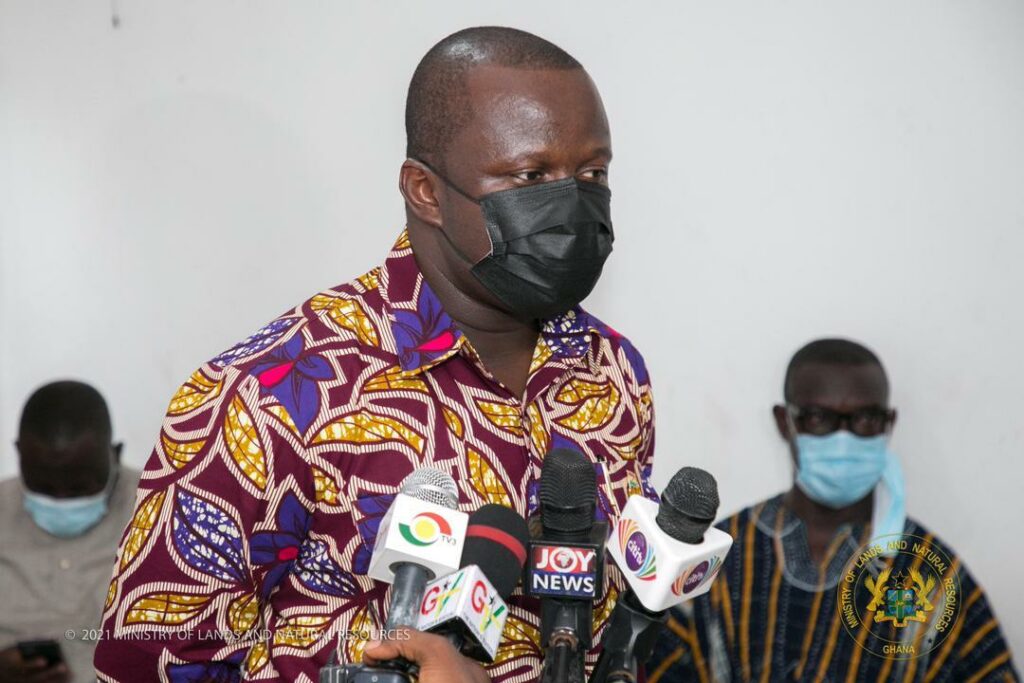Ghana government to work with partners to develop teak industry, improve livelihoods – Minister

The government is working to ensure a high-end return on investments in teak production through value addition to improve livelihoods and guarantee a fair and transparent market system that equitably allocates benefits to all players along the value chain.
Speaking at the opening of the 4th World Teak Conference (WTC 2022) in Accra on Monday, the Minister for Lands and Natural Resources, Samuel A. Jinapor, said Ghana, as the number one teak planting country outside Asia, would work with all partners to develop the teak industry for the socio-economic development of the people and the world at large.
The three-day conference is being organised and coordinated by the Forestry Commission, of Ghana in collaboration with the International Teak Information Network (TEAKNET), India International Union of Forest Research Organisations (IUFRO) International Tropical Timber Organisation (ITTO), with technical support from the United Nations Food and Agriculture Organisation (FAO).
The minister said the Conference, which was being held at a time the world was recovering from a global pandemic, with environmental sustainability at the forefront of global economic debate, presented the opportunity to forge partnerships and effective cooperation for the sustainable development and utilisation of one of the most important tree species in the world.
“It is for this reason that I find the theme for this Conference: Global Teak Market: Challenges and Opportunities for Emerging Markets and Developing Economies, apt”, he said.
He noted that currently, teak is the most exported timber specie from Ghana, both in terms of volume and value adding that last year, for instance, teak constituted fifty-four percent by volume, and forty-five percent by value, of all the forty-two timber species and wood products exported from the country.
He added that government was implementing an aggressive afforestation and reforestation programme, through the Youth in Afforestation Project, the Modified Taungya System, the Forest Investment Programme, and the Green Ghana Initiative.
To further enhance productivity, the Minister said the government had prioritized forest landscape restoration, especially commercial forest plantations, anchored around teak and other timber species.
“Under the Green Ghana Initiative, for example, over seven million (7,000,000) tree seedlings were distributed and planted on June 11, 2021, the maiden edition of the Green Ghana Day, with an estimated twenty-six million (26,000,000) seedlings distributed on June 10, this year, the 2022 edition of the Green Ghana Day. Out of the twenty-six million (26,000,000) tree seedlings distributed this year, about five point two million (5,200,000) of them were teak seedlings” he noted.
The Minister said the position teak occupied in the Ghanaian timber industry was as a result of deliberate and structured efforts by the government, through the Forestry Commission, and in collaboration with private sector players and rural communities, to take advantage of the conducive investment, climatic and edaphic conditions to actively promote the development of forest plantations.
“These achievements have been chalked through the implementation of enabling policy and legal frameworks, respect for the rule of law, and the principles of democratic accountability”.
He was confident that the outcomes from the conference would help shape policy direction towards more value-addition to teak products from the emerging markets and developing economies to improve rural livelihoods and returns on investments in general.
Mr John Allotey, the Chief Executive of Forestry Commission, said the more than 300 participants from about 30 countries demonstrated the global appeal of teak.
World Teak Conferences (WTCS) are organised to create a platform for stakeholder interactions, develop strategies and share new ideas and technologies within the industry.
Delegates and experts from thirty-one different countries across five continents – Africa, Asia, Europe, North America, and South America – representing governments, policy makers, private sector, academia, professional foresters, researchers, development partners, civil society players, and students are attending the conference in Ghana.
Source: GNA
